“This post contains affiliate links, and I will be compensated if you make a purchase after clicking on my links.”
When a reader asked for help with potty training her blind dog, trainer Steve Reid offered up some advice that would help with ANY dog.
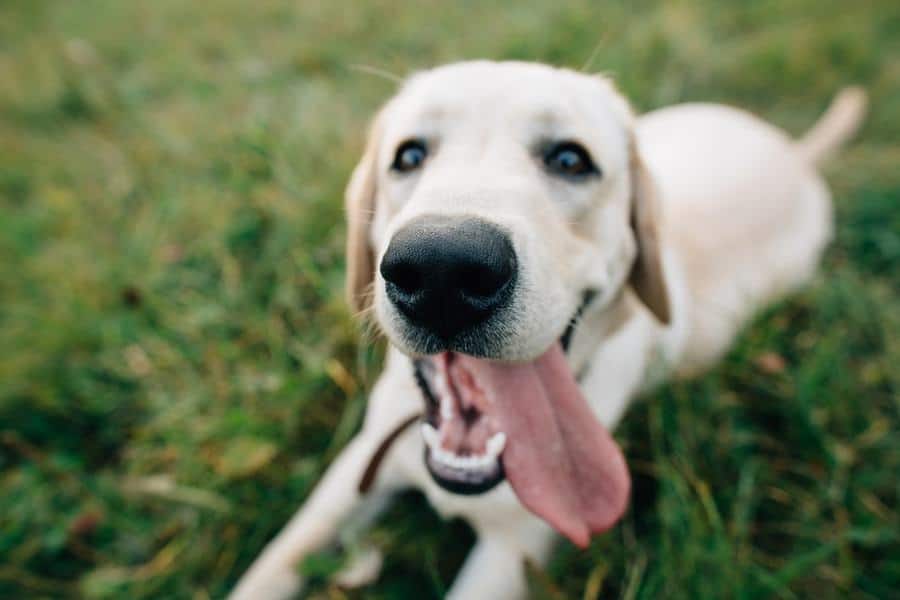
“When we got our Labrador Gus, he was 13 weeks old and now he is 18 months old. He was born blind. I work in veterinary medicine and have for 13 years, so I was willing to take on the challenge. All of my previous dogs I have taught with hand signals, I obviously can’t do this with Gus. Treat training is risky because he can’t see the treat so he bites your hand. As a result, his training is lacking for sure.
My main problem is potty training. We take him out very often. Lots of praise when he goes outside. Yet every single day he sneaks off into another room to poop on the floor. He’s very quick about it. He will even do it right after he has pooped outside and we think he is done. He will urinate right in front of us. If we tell him no, then he will run to the door. Please help!” – Jodi.
Hi Jodi,
Thank you for writing in with this question, as I am sure many others can relate to this. The issues you are experiencing really have nothing to do with the fact that Gus is blind. Rather, they are housebreaking issues that were never fully resolved as a puppy.
Whenever I meet with new puppy clients, the first thing we address is housebreaking. I stress the importance of getting this aspect of puppyhood solved as soon as possible. That way we can move on to how to stop puppy biting, leash walking, and obedience training.
It sounds like your dog was never fully housebroken and you either never used a crate when he was a puppy or prematurely discontinued the use of a crate. Proper crate training is one of the most overlooked aspects of raising a puppy. So what we need to do is go back to basics and use the fundamentals of housebreaking:
1. Predictable schedule that is systematically elongated
2. Crate your dog when unsupervised
3. Direct supervision when out of crate
Read more about Housebreaking Any Dog.
The most challenging part of housebreaking an adult dog, is the fact that some adult dogs have not used a crate in a long time, so they are apprehensive with being in one. If that is the case for Gus, you want to positively condition him to the crate in a slow and incremental fashion. Learn all about crate training and how to select the right size crate HERE.
I hope this article helps you and Gus start moving in the right direction with your housebreaking issues. However, the biggest takeaway I want everyone to learn is, go back to the basics when you are having difficulty with your dog. Lower the distraction level, reward good behaviors, and ignore or correct unwanted behaviors. The fundamentals never fail.
Steve Reid is a Professional Dog Trainer and owner of S.R. Dog Training in Westchester, NY. For more information about S. R. Dog Training, visit www.srdogtraining.com. Please become a fan of Steve on Facebook at www.Facebook.com/SRDogTraining.


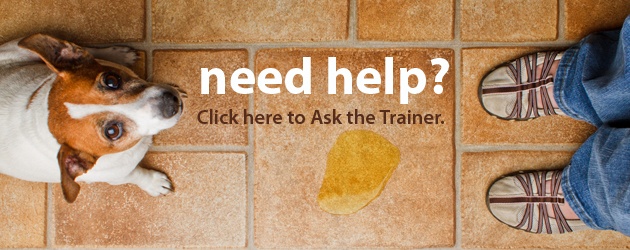


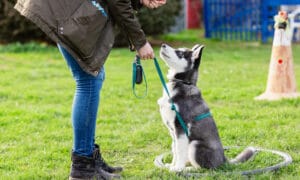






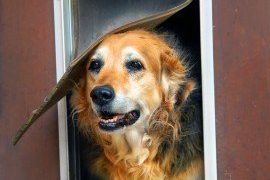









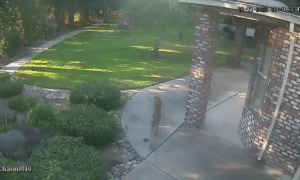


Elaine Toth
says:My dog is 12. He’s had Addison’s disease for about 6 years. Just found out he now has Sars and has gone blind. I need help getting him to sleep on his pillow instead of our bed. I’m concerned that he will fall off the bed.
He barks every 2 hours wanting food.
Is there someone who can help me with some of these new situations?